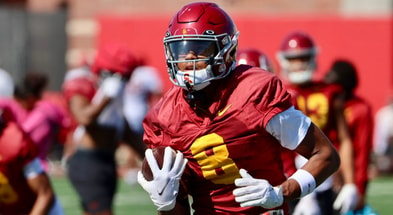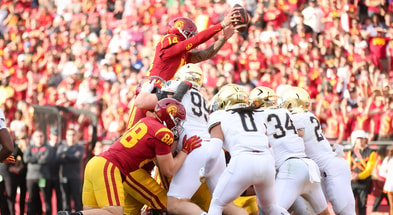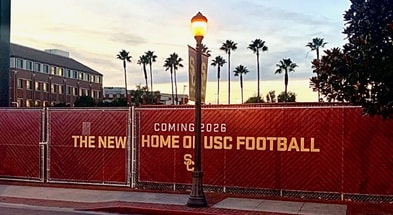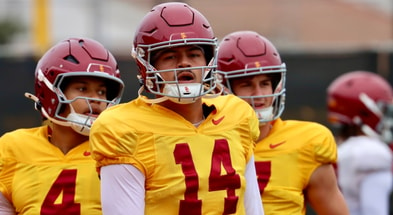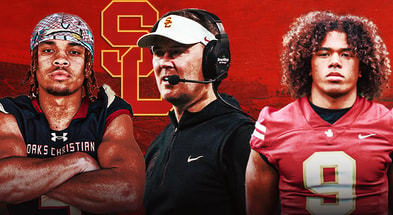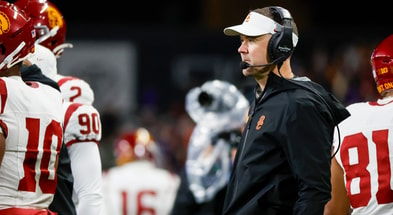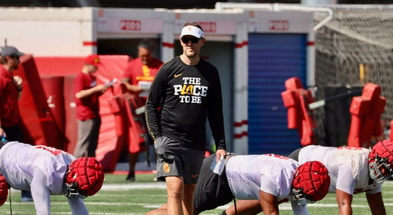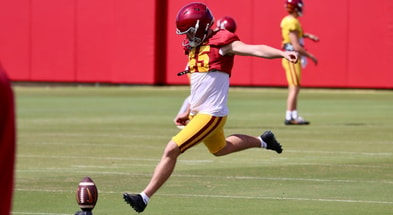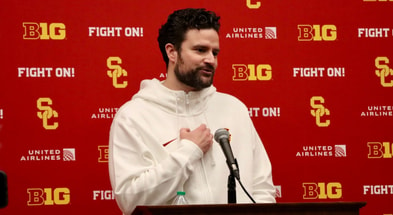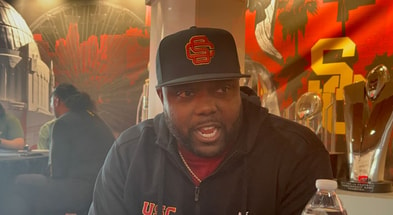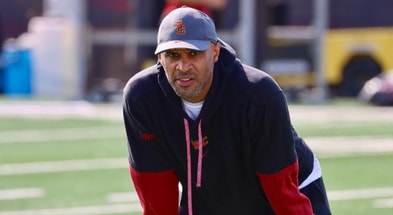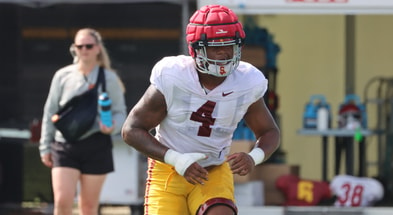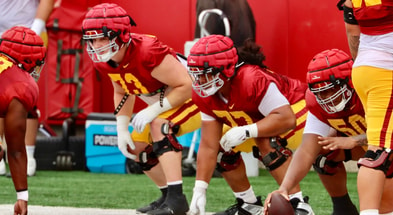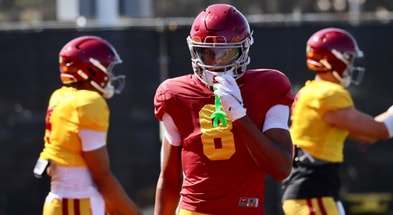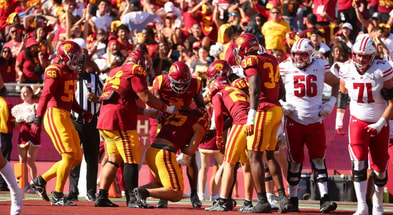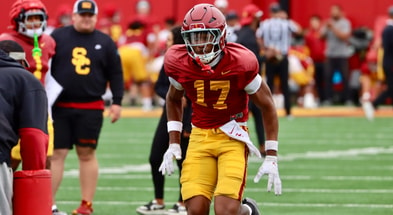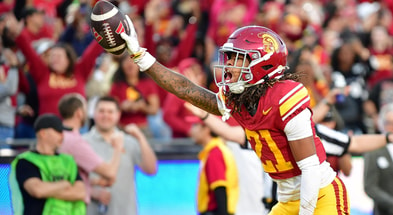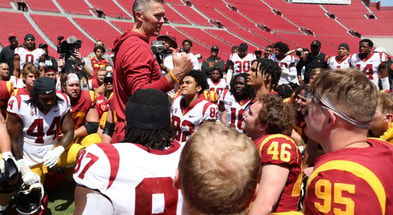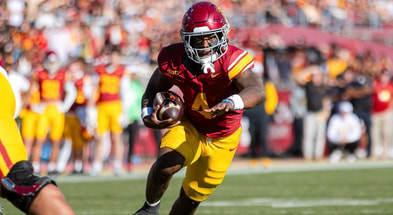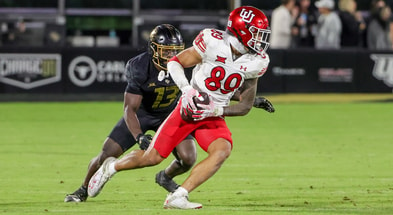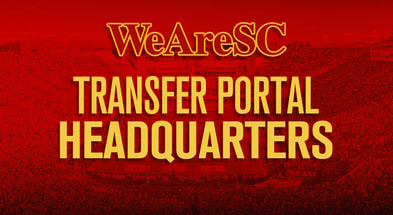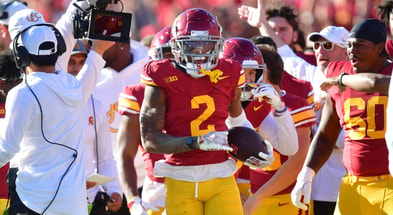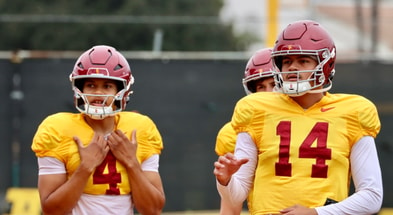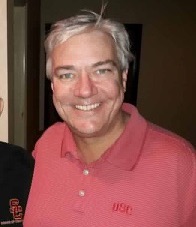Musings from Arledge: When USC has its things in order

The great programs don’t stay down long. The true blue bloods, the programs that have won over many different periods with many different coaches, have built-in advantages. Those advantages are why they can succeed even as coaching staffs change and college football evolves.
But that doesn’t mean the blue bloods can’t have down periods. They all do. Michigan, Notre Dame, Texas, Oklahoma, Alabama, USC – all of them have had stretches of bad football. Only Ohio State has managed to avoid significant stretches of true ugliness.
Blue bloods have built-in advantages. But they still have to get their stuff together.
It took USC a very long time to get its stuff together. Sanctions hurt, which is what they were designed to do. Self-sanctions hurt more. Keeping a coach like Clay Helton around for years was a how-to video in self-harm. USC played Wile E. Coyote for six years while the rest of college football ran around in circles and watched the Trojans fall to the canyon floor (Beep! Beep!). Then Keeping Alex Grinch around was like re-upping your Acme products subscription for another two years.
But it was just a matter of time before USC got things in order. And this is what it looks like when they do. USC has an elite coaching staff, an elite front office staff, elite NIL, and now all of the other advantages that led to its blue-blood status in the first place can matter again. Los Angeles isn’t for everybody, but a lot of kids like it. Strong academics aren’t for everybody, but a lot of families are looking for that. The USC family connections aren’t for everyb – wait, they probably are. Everybody should want strong connections for life after football.
Now that USC has solved its NIL limitations, it is once again killing it on the recruiting trail. And no wonder. If you’re trying to choose between two job offers of similar pay, you base your decision on all the other stuff—location, comfort with co-workers, prestige, whatever. But if one job is offering five times the pay, no reasonable person can ever get to those other factors. Or, if one of the companies is run by Tommy Boy Helton, it’s hard to take that opportunity seriously.
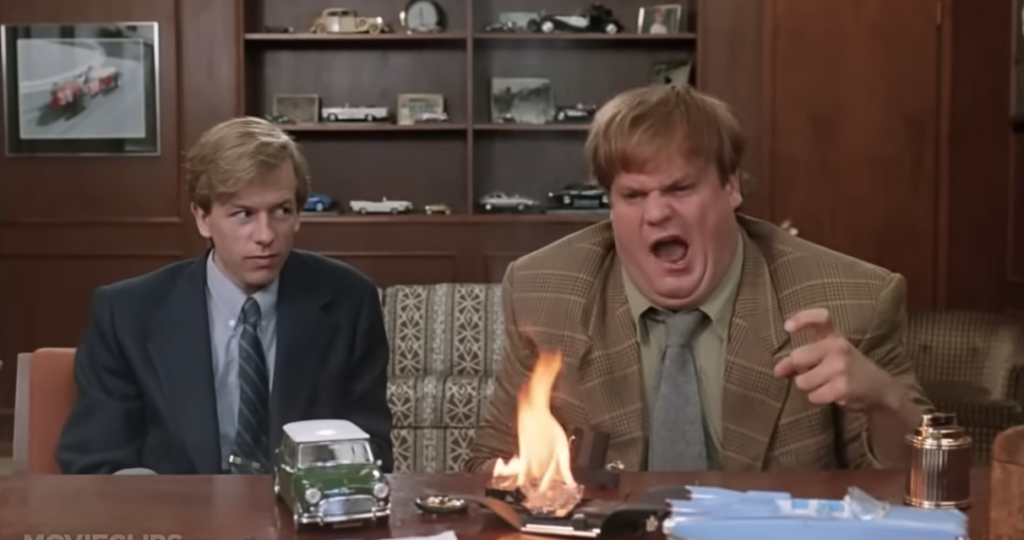
(Me with Clay Helton watching USC football through most of his tenure.)
Except when it has set itself ablaze and is waiting for somebody to bring a fire extinguisher, USC has always been the premier recruiting program on the west coast. It always has a competitor: at times UCLA, at times Washington, more recently, Oregon. But only USC has the combination of location, tradition, academic excellence, and (most of the time) commitment to football excellence to be a college football blue blood and win most of those head-to-head recruiting matchups.
Oregon has shown just how far a program can go with a cash infusion and a great marketing program. And they’ve risen far above their status in recent years. They are flashy, and when they are the only west-coast program offering bags of cash, very difficult to beat on the recruiting trail.
But Oregon’s support is a mile wide and an inch deep. Other than a small number of Oregonians who have lived and died with their program (mostly died) over the decades—much respect to those fans—their support comes from people like that odd middle-aged guy who watched an Oregon game on TV ten years ago and liked their uniforms and Chip Kelly’s offense so, now, with no connection to the university and no history of being an Oregon fan, he has an Oregon program on YouTube. That’s perfect; that’s the Oregon fan base. That guy should get a statue outside Autzen Stadium.
Oregon is flashy and interesting, but they have no roots. They are not built for long-lasting success. Once the heat is turned up, they’ll wither and die. And the heat is now being turned up.
Don’t misunderstand me; Oregon will still land some players. There are always people willing do gross or awful things for a buck—porn, sell drugs, dress up in this:
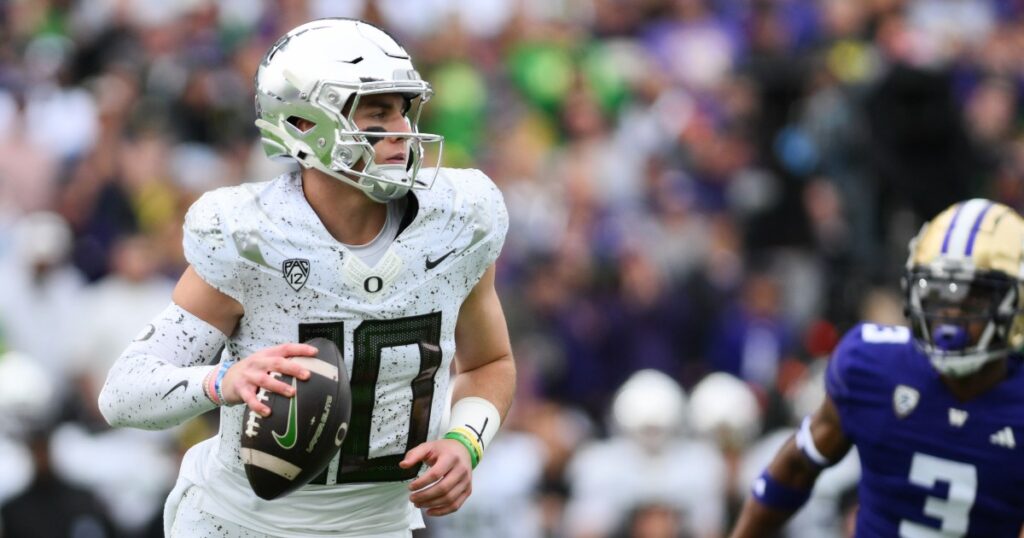
(What was even the idea, here? Let’s put something really boring together that doesn’t have any of our school colors—think Penn State with winged helmets—and then let’s splatter mud all over it to spice it up!)
Somebody will still choose this. And that’s sad, but life is sometimes sad. All we can do is wish them the best and hope they get the therapy they need.
But for most Southern California recruits, now that USC is serious about playing football, USC will once again become the place to play.
—-
The most-recent rumors have the college football playoff expanding to 16 teams with the Big Ten and SEC getting four automatic bids each, the ACC and Big 12 getting two automatic bids each, and the Group of 6 getting one, leaving three at-large spots. And apparently, the last two bids for the two leading conferences would involve play-in games: #3 against #6 and #4 against #5.
Sixteen teams is far too many if you’re just trying to get the truly worthy teams into a playoff, of course. The sixteenth-best team in the country will never win it. But if you just want to increase the number of exciting games at the end of the season—and generate huge sums of cash!—this move makes sense.
The four automatic bids for the two leading conferences is also a good idea. As much as possible, we need to limit the power of a committee to decide anything. Whether it’s the coaches poll, the writers poll, or the selection committee, the powers deciding who plays for the national championship never can get past one thing: the number of losses. This is the thinking that gave us BYU as a national champion once upon a time, and it has infected our polls and national-title selections over the years.
If two teams have the same number of losses, they will consider other factors, like strength of schedule and who meets the eyeball test. Even then, conference affiliation, regional bias, and other factors play too big a role. But if one team has fewer losses, it almost always gets the nod. (The big exception to this rule being Florida State a couple of years ago when the Noles played a terrible schedule and then lost their star quarterback at the end of the season.)
This simple truth has encouraged everybody to water down their schedules. Play nobody out of conference so you don’t risk a loss. That’s the lesson everybody has drawn—including, if appears, Jen Cohen and Lincoln Riley.
That lesson is terrible for college football.
With automatic bids based on conference records, the non-conference games become, ironically, less important and therefore much better. USC can play Alabama without either program worrying that they’re disadvantaging their program vis-à-vis the programs who play two directional schools and UCLA in September.
Top 10
- 1
ESPN direct to consumer
Bundle price revealed
- 2
Bill Belichick
Addresses Jordon Hudson drama
- 3New
Boogie Fland
Withdraws from NBA Draft, enters portal
- 4
Illinois extensions
Bielema, Underwood get new deals
- 5Hot
Livvy Dunne
SI Swimsuit Cover revealed
Get the On3 Top 10 to your inbox every morning
By clicking "Subscribe to Newsletter", I agree to On3's Privacy Notice, Terms, and use of my personal information described therein.
A move to automatic conference bids would allow the big boys to play each other without fear. Few teams are likely to stack their non-conference slate with only heavyweights; you can’t get too beat up to play your conference games. But almost all of the major powers will play one big non-conference game under the proposed plan. The fans love it, and it will prepare your team for the big conference games.
And this means USC can stop thinking about dropping the Notre Dame series. College football’s strength has always been history and tradition. As the economics have changed, schools have trampled each other to be the first to trash their history and tradition for cold, hard cash. Most college athletic directors treat college football tradition like 70’s rock stars treated their hotel rooms. And I get that. But the results have been ugly. Oklahoma and Nebraska don’t play each other. Texas and Texas A&M didn’t for many years. Frequently the Rose Bowl is now a meaningless game. Cal plays in the same conference as Wake Forest. College football has gotten weird.
It is critical that USC not take away the most unique rivalry among the blue-blood programs and maybe the most important rivalry in college football history. I understand not wanting to add another heavyweight to the schedule under the current system. I would never drop the game, but I understand why USC might be thinking about doing so.
With the move to automatic bids, there is no longer any reason even to consider it. USC-Notre Dame is my favorite game of the year, every year. If that game doesn’t matter to you, you probably became a USC fan 15 minutes ago, and you should probably get educated on USC football tradition before venturing an opinion. I’m not interested in hearing an opinion on constitutional law from someone who just learned there is a US Constitution yesterday. I’m not interested in hearing an opinion on engineering a bridge from somebody who has never taken a math course. And, frankly, I’m not interested in hearing an opinion on the USC-Notre Dame rivalry from someone who doesn’t immediately know what 1964, 1974, 1996, and 2005 mean in USC-Notre Dame lore. (Or, if you’re a person of stunted character and land on the other side of this rivalry, 1973, 1977, and 1988.)
I’m excited for the future of USC football. I believe Lincoln Riley will be successful. I give Jen Cohen a huge amount of credit for the massive changes that have given USC a chance to rise to the top again.
But the happy feelings end immediately if they end USC-Notre Dame. If you want continued fan support, don’t poke us all in the eye with a sharp stick just because USC has struggled to win football games the last couple of years. Get better instead. And just realize that where college football is going, you can play Notre Dame and still achieve all of USC football’s goals.
But a USC program that doesn’t play Notre Dame can never achieve one of USC football’s most important goals.
We’re seeing a lot of post-spring top 25 polls and most don’t have USC ranked.
So, fine, I’ll just come right out and say it: they don’t know what they’re talking about. And I get why. If you’re trying to stay on top of every program in the country, you probably don’t know much about any of them individually.
This USC team is going to be good. No, not 2004 good. Certainly not 1972 good. But good.
I believe Lincoln Riley will have a solid offense. Jayden Maiava will be better and a better decision-maker. The offensive line should be fine as long as the tackles stay healthy. The skill positions are solid. Riley’s side of the ball will be good.
It’s the other side of the ball that has me excited. USC will be dramatically better upfront, probably the best it’s been in the front seven since 2008. (No, they won’t be that good.) There is size and talent all along that defensive front, and that group is very well-coached. Great defenses always have great players upfront. USC has waited for a long time, but I think it has a top D-line room now.
You also have potential All-Americans behind them in Eric Gentry and Kamari Ramsey, and all of the starting positions in the back seven will be fielded by guys who can play. Again, barring injuries this defense is good everywhere.
But the difference will be up front. It’s going to be very hard to run on this USC defense. And long-yardage third downs will increase the pressures and sacks.
The schedule isn’t easy. Injuries could derail things. But I think this USC team can make a run at the playoffs. The national pundits will be surprised. I won’t be.

